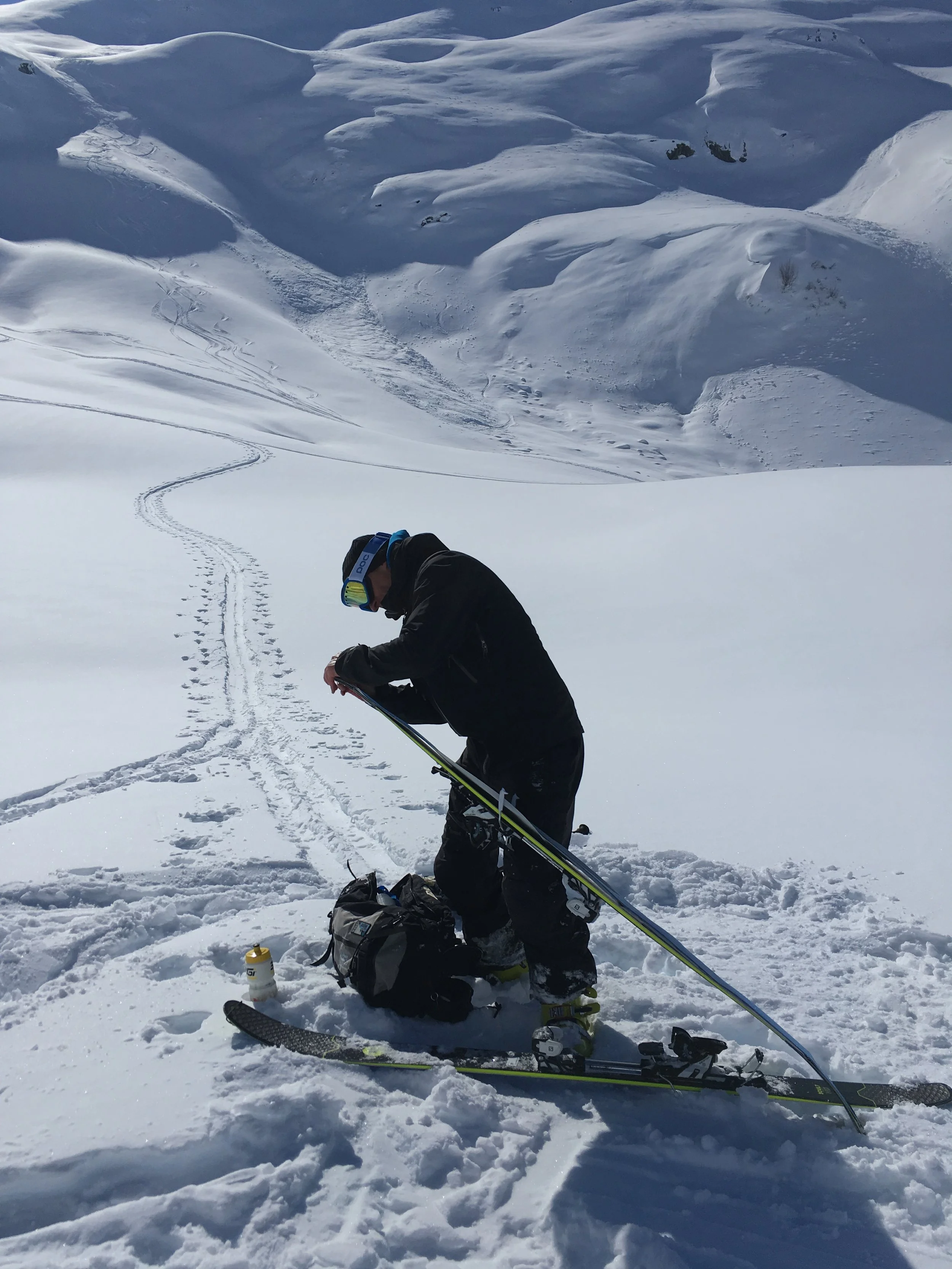You want to know what makes me different.
It’s not what you think.
The moment I realised I needed to get serious about fitness was on a mountain in Austria. I was ski touring with mates - something I'd always loved - and I was dying. Huffing. Puffing. Embarrassing, to say the least. A few years of working long hours in exhibitions as a carpenter in the UK had turned me from a reasonably fit Kiwi into... well, not.
That's how I ended up in triathlon. Not through some lifelong dream or natural talent, but because I was unfit and needed to do something about it. I was living in Birmingham - no mountains, no ocean - so triathlon made sense. A bit of everything.
I'd always been sporty growing up in New Zealand - football, surf lifesaving, then skiing. I discovered the mountains and was hooked. Skiing brought me to Europe in the first place, chasing powder and good times through my twenties. But real endurance training? That was new territory.
25 Years Later…
20 Ironman distance races under my belt
Qualified for Kona twice
Sub-9 finish at Challenge Roth
15 years coaching athletes at every level, from complete beginners to World Championship qualifiers
12 years running Birmingham's only tri shop
British Triathlon Level 3 Coach
That embarrassing day in Austria turned into a coaching career I never planned but can't imagine doing anything else.
What Running a Triathlon Shop Taught Me About Coaching
For 12 years, I owned Tri 1st, Birmingham’s only triathlon shop. That shop taught me as much about athletes - and coaching - as racing ever did.
You see people at their most frustrated. Bikes that don't fit. Gear that doesn't work. Training plans that aren't clicking. And after hundreds of conversations over a cup of coffee, you start to see patterns. You learn what actually matters versus what's just clever marketing.
The biggest lesson? Most athletes aren't failing because they lack talent or work ethic. They're chasing marginal gains while ignoring the fundamentals. They're obsessing over the latest wearables, expensive gear or YouTube training hacks instead of addressing what's actually limiting them. They're following copy-paste programmes or what a mate told them to do, ChatGPT mixed with whatever's trending - none of it accounting for their actual strengths and weaknesses. You can't just pile on more bike volume when someone's a strong cyclist but can barely swim 400m without drowning.
Great coaching is about identifying what's actually holding you back and building a programme around that. It requires real communication, honest feedback, and adjusting when things aren't working.
I've coached athletes at every level - from people attempting their first sprint tri to Kat Matthews transitioning from age-grouper to pro. I work with a 70-something athlete managing health challenges who still competes worldwide. And for some reason, I've become the go-to Birmingham triathlon coach for over-achieving medics and health professionals, helping them train around insane schedules.
The best coaching relationships are partnerships. Athletes who communicate - who tell me when a session felt off, when life got in the way, when something's not working - those are the ones who make real progress. I adjust based on what you tell me, not based on what week 8 of a generic plan says you should be doing.
Consistency beats perfection every single time. And I've learned that most athletes sell themselves short. They think they're "just" an age grouper, or "too old," or "not built for this." I've seen what's actually possible when someone commits to a plan and trusts the process - and it's usually way more than they thought.
